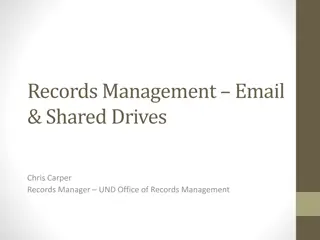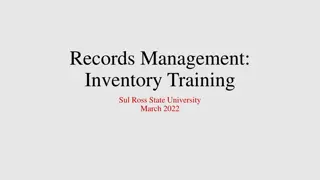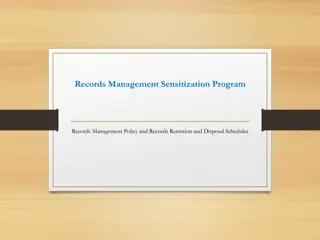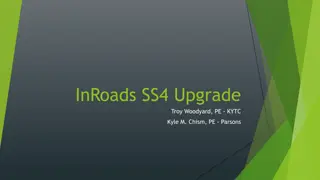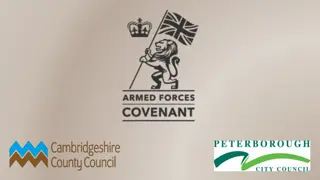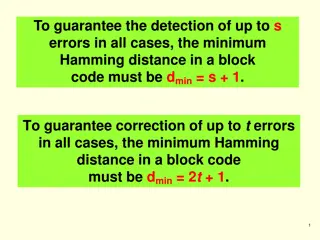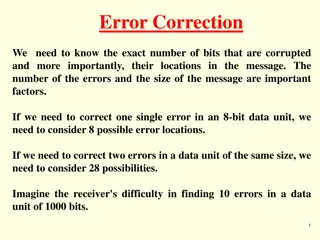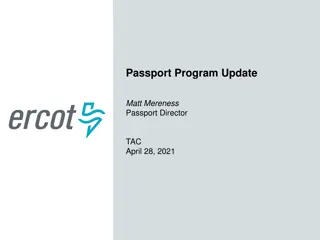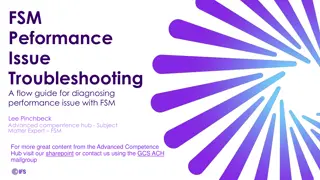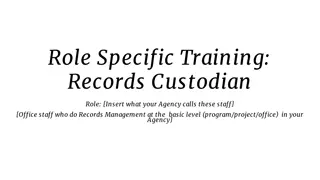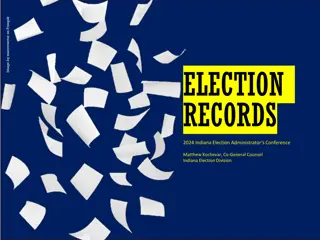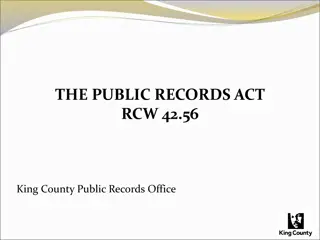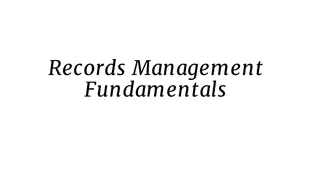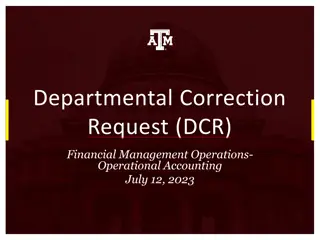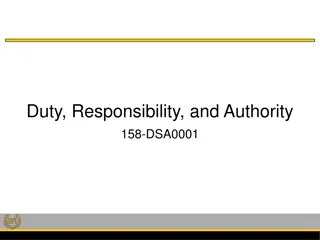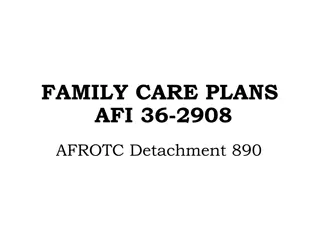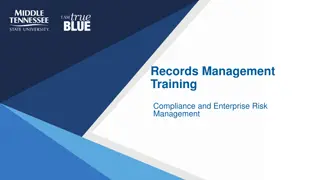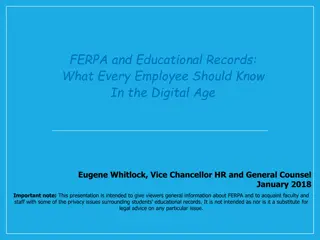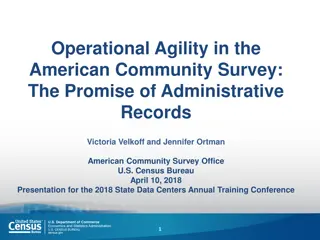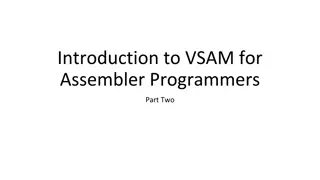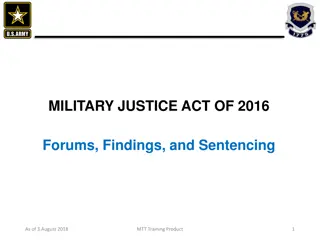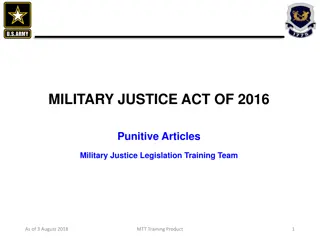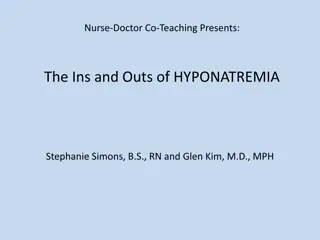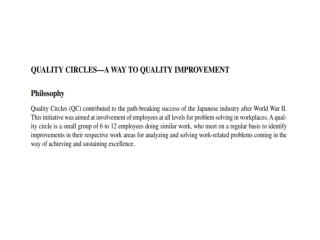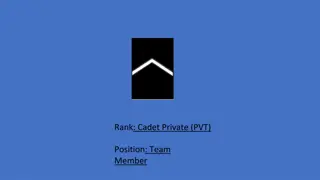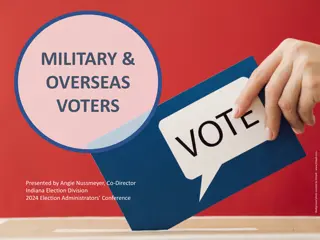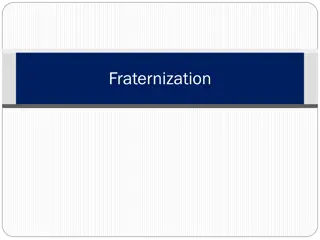Military Records Upgrade and Correction Overview
Veterans with less than fully honorable discharges face challenges with VA benefits, housing, employment, and education. Learn about the process of upgrading discharge status through Discharge Review Boards and the Board for Correction of Military Records.
Download Presentation

Please find below an Image/Link to download the presentation.
The content on the website is provided AS IS for your information and personal use only. It may not be sold, licensed, or shared on other websites without obtaining consent from the author. Download presentation by click this link. If you encounter any issues during the download, it is possible that the publisher has removed the file from their server.
E N D
Presentation Transcript
DISCHARGE UPGRADES AND CORRECTIONS OF MILITARY RECORDS
REFERENCES 10 United States Code 877-934, 1552, 1553 32 Code of Federal Regulations 70.9(b), (c) Department of Defense Instruction 1332.28 Manual for Courts-Martial
OVERVIEW Veterans whose discharge status is not fully honorable or general (under honorable conditions) have what many refer to as bad paper. Bad paper can not only cause problems with eligibility for VA benefits and services, but can also cause potential problems with housing, employment, and educational opportunities. Bad paper can also damage the psyche, and one s sense of dignity and pride. Although your Power Of Attorney credentials only apply to dealings with the V.A., you can still be of great assistance to veterans in assisting them with applying for upgrades and corrections of their DD-214
DISCHARGE REVIEW BOARDS Each branch of service has a Discharge Review Board (DRB) and a Board for Correction of Military/Naval Records (BCMR/BCNR) that review applications for changes to veterans paperwork including discharge upgrades. (The U.S. Marine Corp does not have its own Board, instead its cases are reviewed by the Navy Board.) A DRB may upgrade the characterization of service, except that given as a result of a general court-martial, and may change the narrative reason for separation, except to or from a disability discharge.
DISCHARGE REVIEW BOARDS The DRBs have different procedures and rules than the BCMRs. The statute of limitations for all Discharge Review Boards is 15 years from the date of discharge. No exceptions. The DRBs are composed of five military officers. Veteran applicants may request either a documentary review or a personal appearance hearing. The Boards make decisions based on service personnel and medical records (if applicable), the application and accompanying brief, and any other evidence submitted by the applicant. If a request is denied via documentary review, the applicant has the right to a personal appearance hearing. Requires veterans to travel to Washington, DC at their own expense.
Board for Correction of Military Records BCMRs have more extensive authority: they can upgrade any discharge characterization and change any reason for discharge, change the date of issue of discharge (which may result in back pay), change a discharge to a disability retirement, remove inaccurate performance evaluations or other records, and change re-enlistment codes. If a veteran has exhausted all available remedies at the appropriate DRB, the veteran may then seek relief from a BCMR. BCMRs are composed of civilian employees of the pertinent military branch.
Board for Correction of Military Records BCMRs maintain a three year statute of limitations from the date of discovery of the error or injustice. , date of discharge, or three years from the date of an adverse DRB decision. The statute of limitations may be waived in the interest of justice. If filing an application after the three year deadline, one must include an explanation of why it is in the interest of justice to waive the deadline. Boards for Correction of Military Records do not normally hold personal hearings for the applicants.
BASES FOR UPGRADE OR RECORD CORRECTION Inequity (or injustice) exists when current policies and procedures are more favorable than those existing at the time of discharge; the discharge was inconsistent with disciplinary standards at the time; or quality of service and capability to perform military service make the discharge unfair. Factors for consideration of the quality of service include military ranks, awards, and decorations; letters of commendation or reprimand; combat service; acts of merit; length of service; prior military service; civilian convictions; courts-martial and other forms of discipline; and records of unauthorized absence.
BASES FOR UPGRADE OR RECORD CORRECTION Impropriety (or error) may be found to exist when an error of fact, law, procedure or discretion occurred and the error was prejudicial to the discharge process; or a favorable change in law or policy has been enacted that is expressly made retroactive. Veterans with bad conduct or dishonorable discharges received them as the result of a court-martial conviction. This is the equivalent of being convicted of a misdemeanor (bad conduct discharge) or a felony (dishonorable discharge) in the civilian criminal justice system. These negative discharges appear on veterans criminal rap sheets. Review boards cannot find these veterans not guilty of the crimes for which they were convicted. Instead, they can merely upgrade the character of service. The basis for upgrading such a discharge is clemency only.
BASES FOR UPGRADE OR RECORD CORRECTION Clemency - Veterans with bad conduct or dishonorable discharges received them as the result of a court-martial conviction. This is the equivalent of being convicted of a misdemeanor (bad conduct discharge) or a felony (dishonorable discharge) in the civilian criminal justice system. These negative discharges appear on veterans criminal rap sheets. Review boards cannot find these veterans not guilty of the crimes for which they were convicted. Instead, they can merely upgrade the character of service. The basis for upgrading such a discharge is clemency only. The standard for clemency is much higher than that for equity or injustice. Veterans must demonstrate not only that the crimes for which they were convicted were a true aberration in their behavior, but they are truly model citizens now.
SUPPORTING EVIDENCE A strong application for review also includes at least three letters of support or witness statements. The letters should speak to the veteran s strong moral character, honesty and integrity, leadership qualities. a well-rounded application would include letters from: An employer or professor A community leader (such as a pastor, if the person is religious) A family member or close friend who has known the person for a long time and can attest to strong moral character
PERSONAL STATEMENT Other evidence to assemble includes having the veteran write a statement that explains what led to the discharge in his or her words. While the veteran can and should write about why s/he believes the discharge was unfair, the veteran should not write anything negative about the military. The veteran s statement should also include remorse for the misconduct, and information regarding positive post-service history.
APPLICATION Discharge Review Boards require use of DD Form 293, Application for Review of Discharge or Dismissal from the Armed Forces of the United States. Boards for Correction of Military/Naval Records require use of DD Form 149, Application for Correction of Military Record
Summary Discharge upgrades doesn t officially fall into the parameters of what we do as VSO s. However, we can still try to help these veterans as fellow veterans and brothers/sisters in arms. You won t find the forms mentioned in Vetraspec but, they are easy enough to find online. Encourage these veterans to follow through on the process, nothing ventured, nothing gained. If successful, take POA and do all you can to help the veteran receive all the benefits they are entitled to. If unsuccessful, you can look yourself in the mirror and say you did everything you could.


